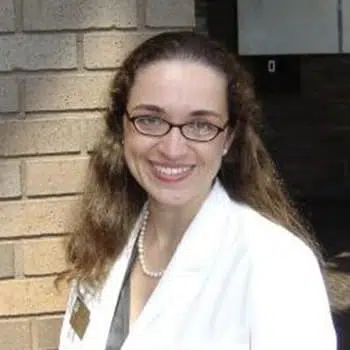How can you be successful in your long-term addiction recovery? While that might not be the first question that you ask when you enter a treatment facility, it comes soon after. Once you are able to avoid substance misuse, you want to ensure that you do not go down that path again. These four pillars of successful long-term addiction recovery will help you move toward a lifetime of recovery.
What Are the Four Pillars of Addiction Recovery?
While there is no short, easy way to ensure addiction recovery, there are four pillars of recovery that help support this lifelong process. Without creating the right foundation for recovery, it is harder to ensure that you will be able to avoid substance misuse in the future. According to the Substance Abuse and Mental Health Services Administration, or SAMHSA, these four pillars are health, home, purpose and community.
Ensuring Long-Term Health
While recovery is about managing addiction, ensuring your long-term health involves a lot more than abstaining from drugs or alcohol. It involves “making informed, healthy choices that support physical and emotional well-being,” according to SAMHSA.
Ongoing healthy choices include:
This Season, Give Yourself the Gift of a Fresh Start.
Whether you are struggling with addiction, mental health or both, our expert team is here to guide you every step of the way. Don’t wait— reach out today to take the first step toward taking control of your life.
- Abstaining from alcohol and drugs. Find a treatment center where you can seek medical support to stop using alcohol and drugs to make this transition easier on your mental and physical health. Counseling and other therapies can help you decide to make this choice day after day as well.
- Eating well. Addiction can make it harder for you to afford high-quality food, and harder for you to consume high-quality food, often risking malnutrition. Eating quality food involves eating fruits and vegetables, for example.
- Finding a regular exercise regime. Exercise releases chemicals that are similar to those you might find in drugs and alcohol. It helps you manage your health, and it also helps you manage your mood. You feel stronger and more able to cope with the challenges of everyday life.
- Seeking a time when you can meditate, do yoga or engage in other practices that are both healthy and meditative. According to Scientific American, “after an eight-week course of mindfulness practice, the brain’s “fight or flight” center, the amygdala, appears to shrink.”
Becoming too hungry can make it easier to relapse. If your body does not feel well, then it is easier to turn to what has given you temporary feelings of ease in the past. When your body feels excellent without drugs and alcohol, then you will not be nearly as tempted to return to those habits, because you will feel good without them.
See More: Body, Mind, and Well-Being Resources
Having a Stable Home Life
Drug and alcohol dependency are harder to manage when you have an unstable home life. For you, stability might look like this:
- Finding a place to live where others do not struggle with substance misuse. This could involve living in sober housing during your recovery, for example.
- Finding stable housing that you can afford. This can be a challenge in places where the cost of living is high. If you have been unable to find employment due to your addiction or you have financial struggles or bankruptcy, finding a home that you can afford can also be difficult. Seeking the support of friends, family, supported housing programs, or treatment centers during this time can help you find the home you need to maintain sobriety. For instance, SAMHSA works with tribal groups to create supported housing programs for those who are looking for supportive, culturally focused housing.
Creating a Life of Purpose
When you feel like you have a strong purpose in life, it provides you with a focus and a pleasure other than alcohol or drugs. This purpose could be a job or an educational endeavor that you enjoy. It could also involve volunteer activities, caring for family members or creativity.
Finding a drug and alcohol treatment facility that focuses on purposeful practices can help you start enjoying life again. For instance, art therapy, meditation or animal-assisted therapy can be something that helps you achieve sobriety, and it can help you maintain it and can be one source of meaning in your life.
Finding a purposeful life is not always simple, and you can encounter challenges as you work to achieve a life of purpose. For example, parenting can be a very purposeful activity, yet it is still one that is very difficult at times. As you work to achieve your life’s purpose, make sure that you have a strong support system in place so that you can work through the challenges of these relationships and activities without using drugs and alcohol.
Developing Relationships in Community
A community is important to every person, and it is particularly important when you are having struggles with mental and physical health. Moving into a healthy space with your group of friends and your family members allows you to find the support you need to maintain ongoing sobriety. When you are seeking community, you should focus on:
- Developing strategies for making friends, assessing your relationships, and setting healthy boundaries. Working in group therapy or counseling at a treatment center can help you do this, and you can maintain these connections with counselors in an aftercare program as well.
- Finding someone with whom you can share your worries. This could be a group of close friends or it could also be a counselor. One-on-one connections are essential to your recovery. Conversely, if your close friends and relatives have one-on-one relationships with you that encourage alcohol misuse, this can be detrimental to your health.
- Creating a group of friends who support your sobriety. This could involve finding new hobbies and social groups if your group of friends often misuses alcohol and drugs. According to a journal article entitled Friends, Family, and Alcohol Abuse, “less supportive friendships help perpetuate continued alcohol problems for people in recovery.”
- Being in a place where your relationships are supportive and stable. The mental health challenges associated with an abusive or emotionally unhealthy relationship are a challenge not only to you mentally, but physically as you work to maintain sobriety. Trauma from past and current relationships is something that can lead to substance misuse.
- Pets can offer a meaningful relationship. Pet adoption in addiction recovery gives individuals the ability to develop new, meaningful relationships with something other than a romantic partner. They offer unconditional love and provide company all day. This type of unconditional love from a pet can help people recovering from a substance use disorder to learn to love others that they may develop a relationship with in the future.
At The Recovery Village Columbus, we know that recovery is an active, lifelong process. Are you looking for Ohio addiction treatment resources? If you want to start that process, contact us today. Learn how we can help you and your loved ones move into a sober life together.









